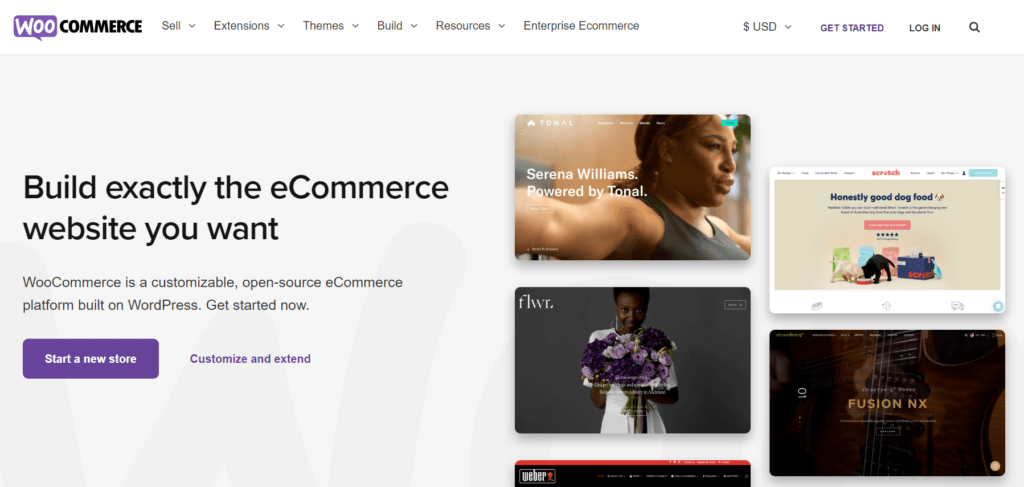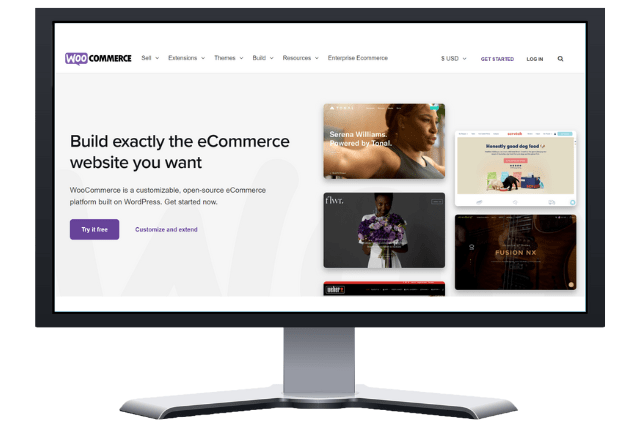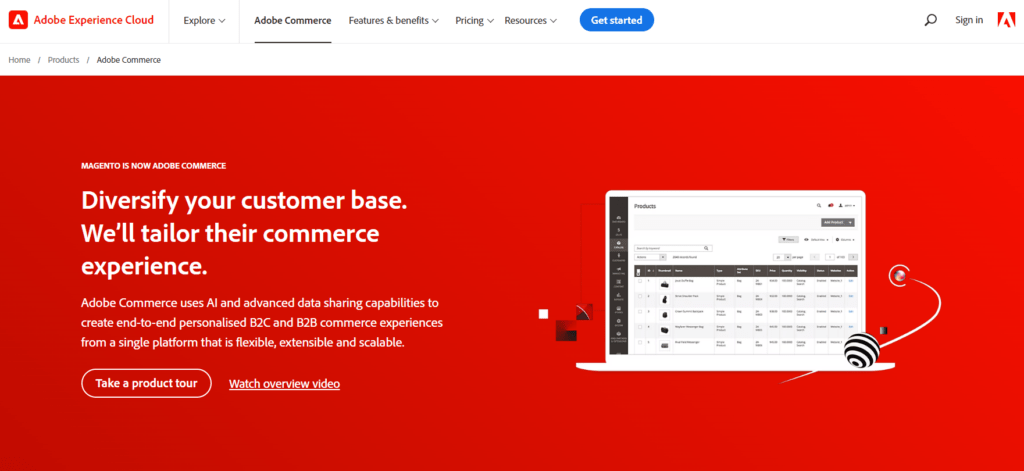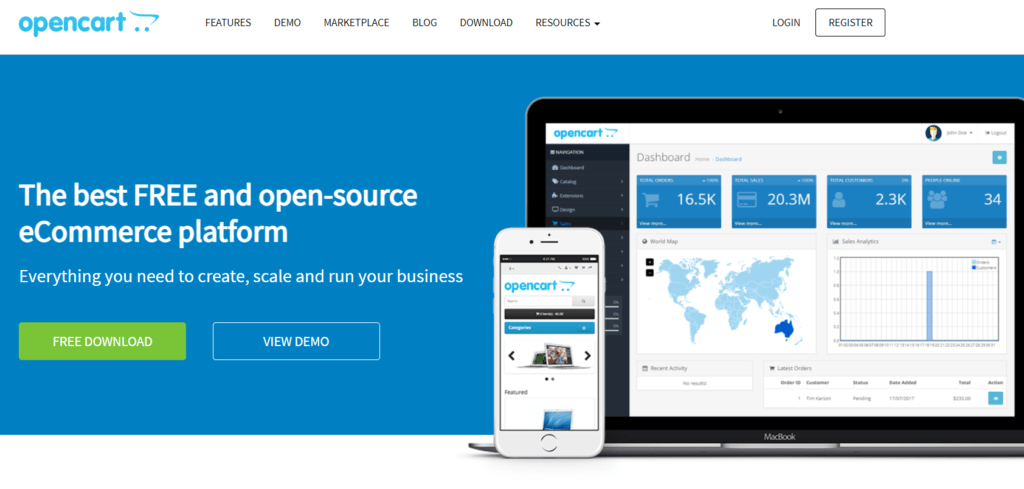E-commerce platforms have become increasingly popular in recent years as businesses seek to expand their reach and tap into new markets. There are a variety of e-commerce platforms available, each with its own set of features and capabilities.
It is essential to do your research and select a platform that will best meet your needs. This article will overview some of the most popular e-commerce platforms and highlight their key features.
The best e-commerce platforms for businesses
Ecommerce platforms are software solutions that allow businesses to create an online store and sell products or services. There are many different types of e-commerce platforms, and each has its own set of features and benefits.
When choosing an e-commerce platform for your business, it’s important to consider your needs and budget. If you’re just starting out, you may want to choose a platform that’s easy to use and doesn’t require a lot of customization. If you have a larger budget, you can choose a platform with more advanced features and greater flexibility.
Some of the most popular e-commerce platforms include Shopify, Magento, WooCommerce, OpenCart, and BigCommerce. Each of these platforms has its own strengths and weaknesses, so be sure to do your research before making a final decision.
Platform 1: Shopify
Shopify is one of the most popular e-commerce platforms, with over 500,000 businesses using it to run their online stores. It’s easy to use, has many features, and is highly customizable. You can use Shopify to sell online, in-person, and on social media. It has built-in payment processing, so you can start accepting payments immediately. Overall, Shopify is a great choice for businesses of all sizes.

Shopify
An industry-leading e-commerce platform that has redefined online retail with its user-friendly interface, robust features, and unwavering commitment to empowering entrepreneurs.
One of Shopify’s standout features is its intuitive and user-friendly interface. It empowers even the least tech-savvy individuals to set up their online stores without requiring extensive coding knowledge.
Users can choose from various customizable templates to tailor their storefronts to reflect their brand’s unique identity. This simplicity doesn’t sacrifice functionality, as Shopify offers various tools to manage inventory, process orders, and analyze sales data.

Recognizing that different businesses have distinct needs, Shopify has built a thriving ecosystem of apps and integrations.
This ensures merchants can enhance their store’s capabilities through third-party applications that span marketing, customer service, analytics, and more. This modular approach allows businesses to scale and adapt as their requirements evolve.
| Benefit | Description |
|---|---|
| Easy to use | Intuitive interface makes it easy to add products, create pages, and customize your store’s design |
| Responsive design | Stores adjust to fit the screen size of any device |
| Secure payment processing | Meets security standards required to process online payments |
| Multiple payment options | Credit cards, PayPal, and Apple Pay available |
| Marketing tools | Email marketing, SEO tools, and social media integration included |
| App store | Hundreds of apps to improve store functionality and streamline business operations |
| Expert support | 24/7 phone, email, and live chat support available |
Platform 2: WooCommerce
If you’re looking for an eCommerce platform that will give you everything you need to succeed online, WooCommerce is the way to go.

WooCommerce is an open-source e-commerce plugin for WordPress. It is designed to make it easy for small to medium-sized businesses to sell products and services online.
WooCommerce works by adding e-commerce functionality to your existing WordPress website. It integrates with your website and allows you to create and manage products, process orders, and handle customer data.
One of the main benefits of using WooCommerce is that it is built on top of WordPress, a popular and user-friendly content management system. If you already have a WordPress website, it is easy to add WooCommerce to your site and start selling products or services online.

WooCommerce
A powerful and versatile plugin for WordPress that has revolutionized the way businesses create and manage their online storefronts, blending the world of e-commerce with the flexibility of one of the most popular CMS.
WooCommerce differs from other e-commerce platforms in that it is designed to be lightweight and easy to use. It is not as feature-rich as some other platforms, but it is well-suited for small to medium-sized businesses that don’t need a lot of advanced features.
| Benefit | Description |
|---|---|
| Free to use | WooCommerce is an open-source plugin that is free to use. |
| Customizable | WooCommerce has a large and active community of users, so you can easily find help and support when needed. |
| Cost-effective | The cost of hosting and other expenses associated with using WooCommerce is typically lower than other e-commerce platforms. |
| Flexible | WooCommerce can be used to sell a wide range of products, from physical goods to digital products and services. |
| Large and active community | WooCommerce is built on top of WordPress, a popular and user-friendly content management system. This makes it easy to use and manage. |
| Built on top of WordPress | WooCommerce is built on top of WordPress, which is a popular and user-friendly content management system. This makes it easy to use and manage. |
Platform 3: BigCommerce
BigCommerce is one of the most popular e-commerce platforms on the market. It offers many features and tools to help businesses create and manage their online stores. BigCommerce is a great platform for businesses of all sizes, from small to enterprise companies.
Some of the key features offered by BigCommerce include:
- A customizable platform that can be tailored to your business’s needs
- A wide range of built-in features and tools, including product catalog management, shopping cart functionality, order management, shipping, tax calculation, etc.

| Benefit | Description |
|---|---|
| Easy to use | BigCommerce has a user-friendly interface and a range of helpful tools and resources. |
| Customizable | BigCommerce allows you to fully customize your store, including the design, layout, and functionality. |
| Scalable | BigCommerce can handle high volumes of traffic and sales, and can support an unlimited number of products and orders. |
| Secure | BigCommerce uses advanced security measures to protect your store and your customers’ data. |
| SEO friendly | BigCommerce is optimized for search engines, making it easier for customers to find your store online. |
| Integrations | BigCommerce integrates with a wide range of tools and services, including payment gateways, shipping carriers, marketing tools, and more. |
Platform 4: Magento
Magento is a feature-rich, open-source eCommerce platform that offers merchants complete flexibility and control over their online store’s user experience, content, and functionality. Magento’s intuitive administration interface provides powerful tools for managing products, customers, promotions, and more.
Magento is a popular choice for businesses of all sizes looking for an eCommerce solution. While the platform does have a learning curve, it is packed with features and offers complete control over the look, feel, and functionality of an online store. For businesses serious about selling online, Magento is worth considering.

| Benefit | Description |
|---|---|
| Customization | Magento allows businesses to tailor their online stores to their specific needs and preferences. This includes the ability to customize the layout, design, and functionality of the store. |
| Scalability | Magento can handle high traffic and large volumes of sales, making it a great option for businesses that expect to grow quickly. It can easily handle a large number of products and categories, and can be easily scaled up as needed. |
| Security | Magento has strong encryption and secure payment gateways, making it a safe and reliable choice for businesses handling sensitive customer data and financial transactions. |
| SEO | Magento is built with SEO in mind, making it easier for businesses to optimize their online stores for search engines. It includes features such as customizable URLs, meta tags, and sitemaps. |
| Mobile-friendly | Magento is responsive and mobile-friendly, ensuring that customers can easily access and shop on a business’s online store from their mobile devices. |
| Advanced marketing and analytical tools | Magento includes a range of advanced marketing and analytical tools, allowing businesses to track and analyze their sales and customer data. This can help businesses make informed decisions about their marketing strategies and optimize their online store for better performance. |
Platform 5: OpenCart
OpenCart is a free and open-source eCommerce platform for online stores. It is written in PHP and has many features for building an online store, such as support for multiple languages and currencies, product reviews and ratings, various shipping and payment methods, etc.
OpenCart is a good choice for small to medium businesses looking for a simple platform to build their online store. It is also relatively easy to set up and use, which makes it a good choice for businesses that do not have a lot of experience with developing websites.

| Benefit | Description |
|---|---|
| Customization | Allows customization of online store to match brand identity and business needs |
| User-friendly interface | Simple and intuitive interface makes it easy to use |
| Responsive design | Store looks and functions optimally on all devices |
| Multiple payment options | Supports a range of payment gateways |
| SEO-friendly | Built-in SEO features improve store visibility in search engines |
| Extensive documentation and support | Extensive documentation and community support available |
| Security | Encrypts sensitive data and has measures in place to prevent cyber attacks |
How to choose the best e-commerce platform
Choosing the right e-commerce platform can be a daunting task for any business, but it is an essential step in building a successful online store. With so many options available, it can be overwhelming to determine which platform is the best fit for your business.
Understanding Your Needs
Before you start evaluating e-commerce platforms, it is important to understand your business needs and goals. What products or services do you offer? Who is your target audience? What is your budget for building and maintaining an online store? Answering these questions will help you determine the features and functionality that are most important to your business.
Types of E-Commerce Platforms
There are several types of e-commerce platforms available, each with its own strengths and weaknesses. The main types of e-commerce platforms include:
- Self-hosted platforms: These platforms allow you to host your own online store and have complete control over the design and functionality. Examples include Magento and WooCommerce.
- SaaS (Software as a Service) platforms: These platforms are hosted by the provider and offer a range of features and tools for building and managing an online store. Examples include Shopify and BigCommerce.
- Marketplace platforms: These platforms allow you to sell your products on a pre-existing platform, such as Amazon or eBay.
Key Features to Consider
When evaluating e-commerce platforms, there are several key features to consider. These include:
| Key Feature | Description |
|---|---|
| Payment processing | The platform’s ability to accept various payment methods, such as credit cards, PayPal, and more. |
| Shipping options | The options available for shipping products to customers, such as flat rate, real-time rates, and more. |
| Product management | The tools and features available for adding, organizing, and managing products on the platform. |
| Marketing and SEO | The platform’s ability to help you market your products and improve your search engine rankings. |
| Customer support | The level of support available to help you with any issues or questions you may have about the platform. |
| Scalability | The platform’s ability to accommodate growth and expansion as your business grows. |
| Demo or trial availability | The availability of demos or free trials that allow you to test out the platform before committing to it. |
| Reviews and ratings | Feedback and ratings from other businesses that have used the platform. |
| Pricing plans | The cost of using the platform, including any fees for additional features or tools. |
Making the Decision
After evaluating all of the available e-commerce platforms, it is time to decide. Consider all of the factors that are important to your business, such as budget, features, and customer support, and choose the platform that best meets your needs. Don’t be afraid to ask for help or advice from other businesses or industry experts.
Conclusion
Choosing the right e-commerce platform is an important decision that can have a significant impact on the success of your online store. By understanding your business needs and evaluating the various options available, you can make an informed decision that will help your business thrive.
Remember to keep your business goals in mind as you evaluate e-commerce platforms, and don’t be afraid to ask for help or advice from other businesses or industry experts. With the right e-commerce platform in place, you can focus on building and growing your online store and connecting with customers around the world.







